Travel is a wonderful way to explore the world. Arguably, it’s the ONLY way to explore the world. And, while travel is a great way to get familiar with your home planet and the folx you share it with, travel can also be very resource-intensive — i.e. not particularly good for the planet. So, in no particular order, here are our top 8 recommendations for greening your travel!
Go By Train
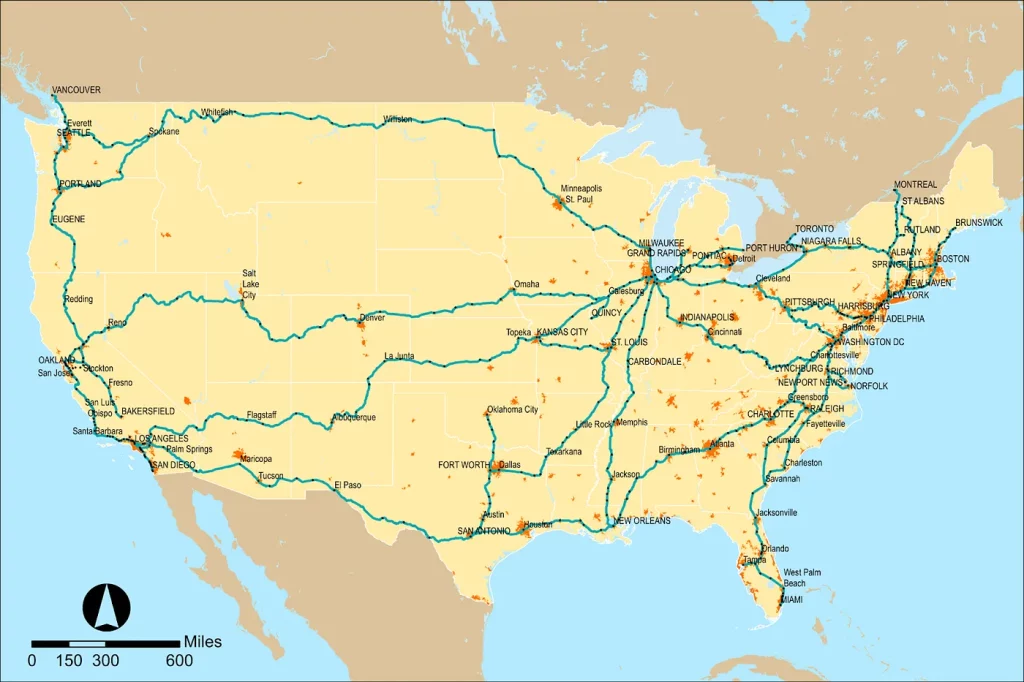
Airplanes SUCK…gas like almost no other forms of transport — boats are actually worse (sorry, cruise lovers). On the other hand, trains are gas sippers. You may not be able to get to every destination by train, but many countries have extensive national and regional rail networks that will get you around once you arrive. It’s a beautiful way to explore wherever it is you’re going, and you’ll see countryside you never could have from the air or the highway. Heck, you’re likely to even get some destination inspiration for your next trip!
Use Mass Transit

Once you get where you’re going, mass transit (metro, light rail, bus, etc.) is an economical way to get around many if not most cities. The bigger the city, the more likely it is to be readily available, but even smaller towns in the US tend to have SOME form of mass transit, like buses. For those who offer it, you can look into tourist-aimed options like the Old Town Trolley as well! They’re designed to show you local points of interest while shuttling you around. It’ll save you a few bucks and the hassle of having to rent a car!
Rent (Hire) A Bicycle

Many cities are doing a much better job about being bike-friendly and bike share programs are springing up all the time. Bikes let you take your time getting around, and in some cases offer even better flexibility than cars. There are also other forms of self-powered and electric-powered transit like scooters, so keep your mind and your eyes open as you explore. Just remember to respect bike lanes and operating rules so you stay safe as you tool around your destination!
Request A Hybrid Or EV For Your Rental
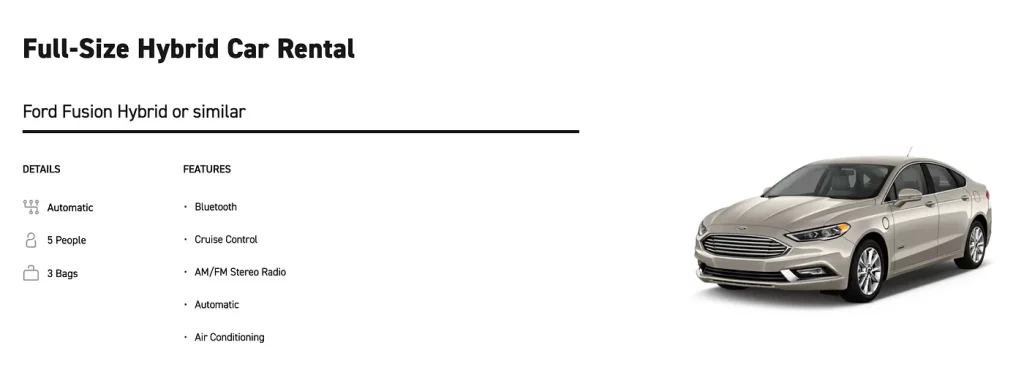
Of course, if you do need to rent a car for any reason, this is a judgment-free zone! Most rental fleets have fuel efficient options nowadays anyways, so you can have the option of renting a hybrid that can get more than 50 MPG, or even a fully electric vehicle. Carpooling is also a great option if you’re traveling as a group of two or more, and in most larger cities, you’ll get to take advantage of HOV lanes to avoid traffic jams. Beyond saving time, you’ll help reduce the carbon impact of your journey and save a few bucks on fuel while you’re doing it!
Besides, if you think gas prices in the US are outrageous, check out this summer’s projected averages for the rest of the world:
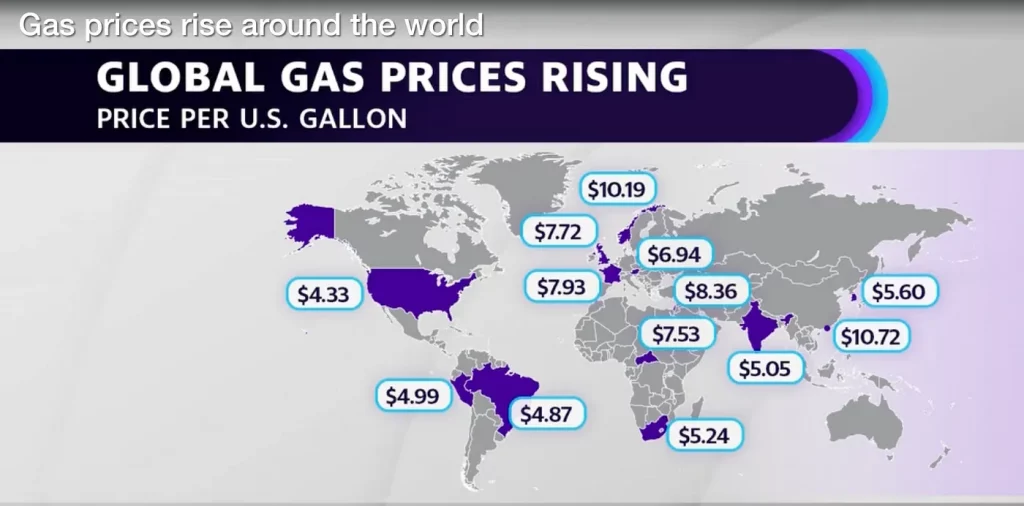
Use The Google Efficiency Meter
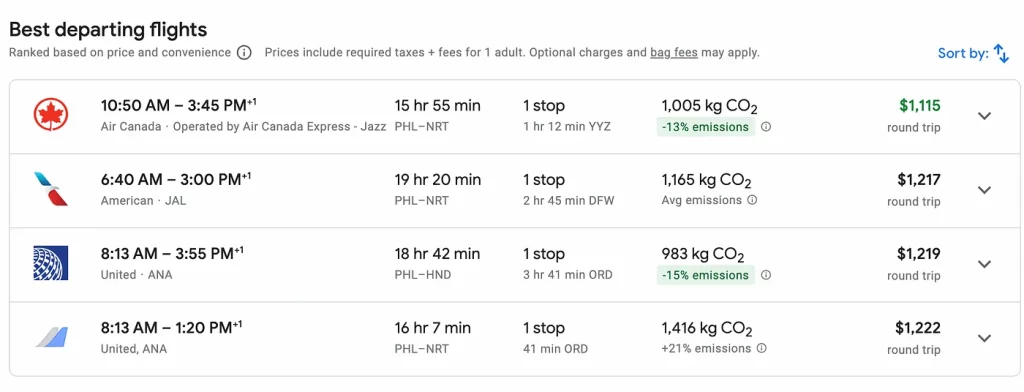
If you are (likely) flying to your destination, Google has created a tool for measuring the carbon impact of your flights. Popping your route into Google Flights can help save you money, time, and CO2 emissions when selecting your route.
Buy Carbon Offsets

Carbon offsets are designed to let you make up for the carbon your travel produces by paying into programs that reduce the amount of carbon being emitted elsewhere, i.e. protecting a patch of rainforest that would otherwise be cut down if not for the $10 in carbon offsets you bought. There are even projects underway to capture carbon directly and pump it back into the ground that you can support!
Programs generally function the same: Use their proprietary calculator to determine the carbon usage for you as an individual or for your group as a whole. Then, donate the offset cost to their mission. Any program worth its salt will have detailed accounting of how they use their donations. A few of the most frequently recommended are Native Energy, Sustainable Travel International, and TerraPass.
Buy (Really) Local
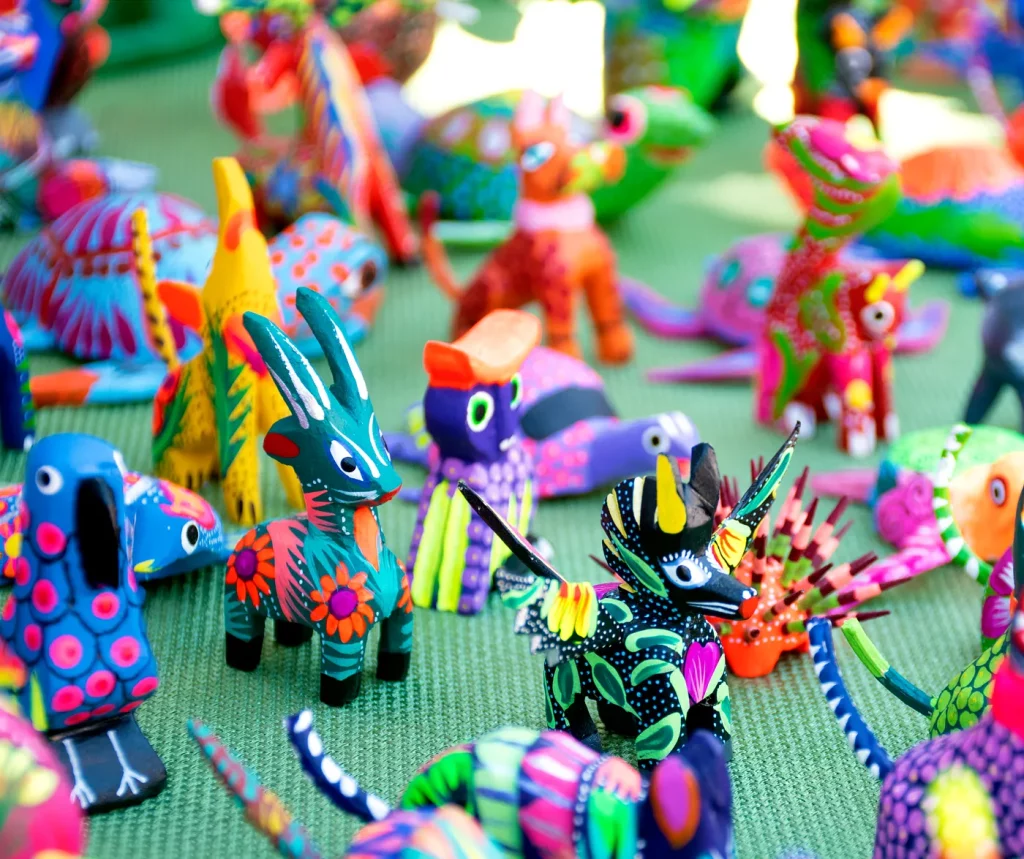
This one comes to us from our friends over at National Geographic (paywall alert), and it makes a great point! If you’re traveling and want to bring home a piece of memorabilia, the last thing you want to do is turn your new treasure over only to find that was manufactured thousands of miles from your destination. And the impact goes beyond your impending disappointment: If the shopkeep you’re buying it from imported it from elsewhere, there was a CO2 cost in getting the item to the shop; then there’s the additional cost of a local artist/artisan who’s missing out on the money they’d have made selling one of their wares to you directly.
Local items might be more expensive and, in some cases, a little tougher to find, but that little extra effort guarantees you’ll be filled with warm memories — instead of warming global temperatures — every time you look at your keepsake!
Avoid Wildlife Products (!!!!!)
We’re hoping this one is a little more obvious, but in case it’s not:
Please, don’t buy wildlife products. Period. Full Stop. Just don’t.
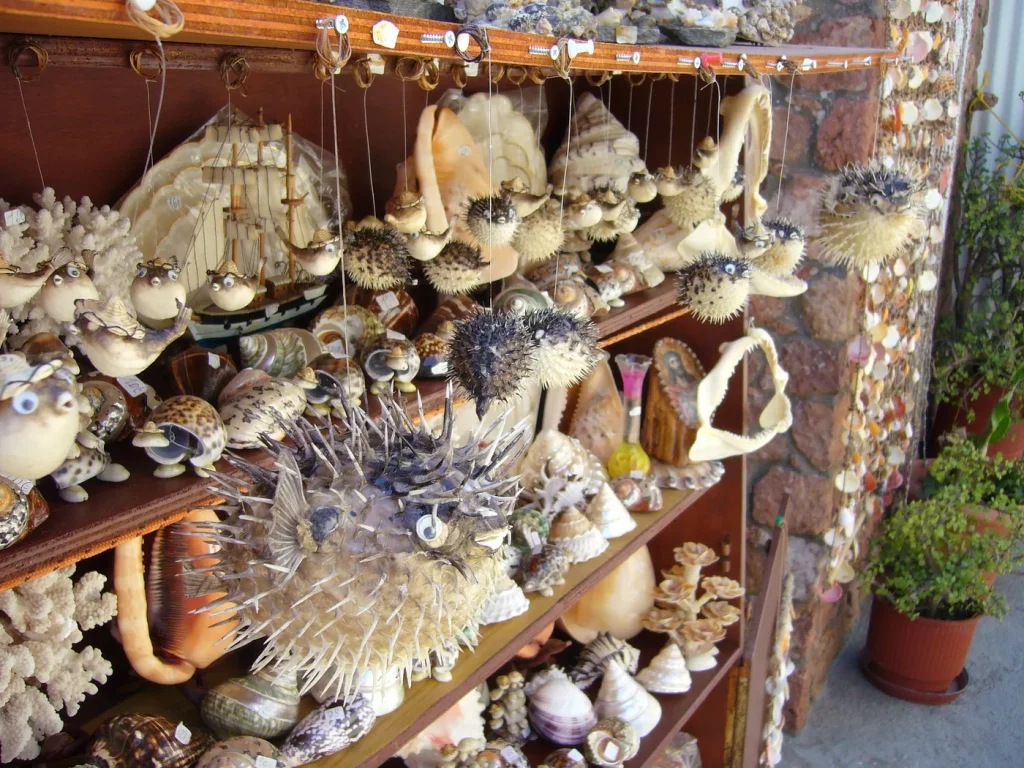
Instead, follow the rule of “take only pictures, leave only memories”.
Purchasing wildlife products like seashells, or real fur, or shark fin soup, or shellacked sea turtles, or gorilla paw ashtrays, or sun bear bile, or furniture made from endangered tree wood, or ivory anything — this horrifying list goes on — helps to feed the market for wildlife trafficking. And this market doesn’t just affect wild animals. People who work in animal protection and conservation are also in constant danger from poachers, with 269 rangers murdered between 2012 and 2018 in Africa alone.
Also worth noting, legal and illegal trapping tactics and the impact of reduced wildlife numbers have created a direct connection between the market for wildlife products and the rise in global temperatures. So only by reducing the market for such things, can we as responsible travelers ensure a future for ourselves and our beautiful planet!


No responses yet